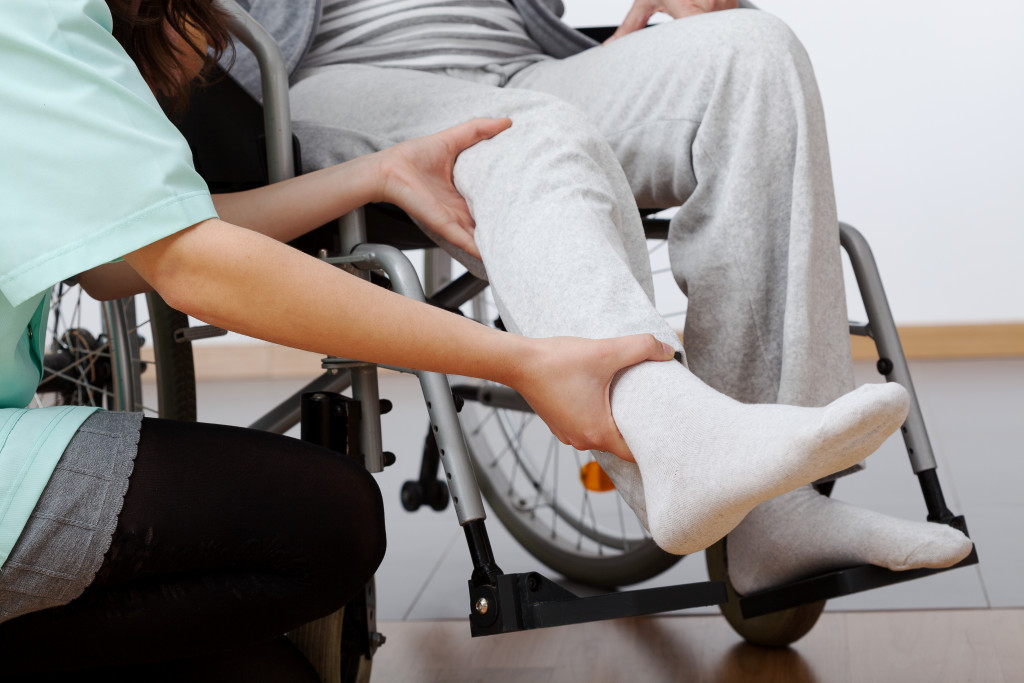- Injury recovery involves managing physical, emotional, and social stressors for well-being.
- Mindfulness, relaxation techniques, and counseling can effectively address emotional stressors.
- Adequate exercise, balanced nutrition, and hydration aid physical recovery and stress management.
- Chiropractic care, physical therapy, and alternative therapies can enhance physical healing post-injury.
- Complete healing encompasses physical recovery, emotional stability, and social reintegration.
Sustaining an injury can be a disruptive and stressful experience that can impact your physical, emotional, and social well-being. While your focus may be on physical recovery, it is essential not to overlook your mental and emotional needs during this time.
The healing journey is more than just addressing the physical pain; it’s about embracing the entire recovery process, including the emotional and psychological aspects. By nurturing your mental health and well-being, you can transform your recovery period into a time of growth and self-discovery, creating a path that shines with hope and positivity.
Managing stress during recovery can bring inner peace, reduce the impact of stressors, and support complete healing. This blog will address injury recovery stressors and provide practical techniques for stress management and inner peace.
Understanding the Stressors of Injury Recovery
Injury and accident recovery often involve a medical team, physical therapy, prescription medications, and lifestyle changes—it can be an overwhelming experience. Here’s how you can navigate this journey and achieve a full recovery:
Physical Stressors
One of the most common stressors is physical; injuries cause physical stress on the body, including pain, inflammation, and limited mobility. These stressors can significantly affect your well-being and daily activities, leading to frustration, anxiety, and stress. Seeking help from medical professionals is crucial for managing pain and promoting healing.
Emotional Stressors
Moreover, it can cause emotional stress that is challenging to manage. Fear, anxiety, sadness, and hopelessness may arise due to disrupted routines, loss of independence, and uncertainty about recovery timing. It’s important to remember that these emotional stressors are every day and can be effectively managed.
Social and Lifestyle Stressors
Finally, injuries can disrupt social relationships and daily activities, leading to social and lifestyle stressors. You may feel disconnected from your social support systems, and your injury may impact your work, school, or daily activities.
Managing social and lifestyle stressors can help you maintain your social relationships and a sense of normalcy while focusing on your recovery.

Effective Stress Management Techniques
Now that you understand the stressors of injury recovery, it’s time to focus on managing your stress. Here are some effective techniques for managing stress and achieving inner peace during your recovery journey:
Mindfulness and Relaxation
Practicing mindfulness and relaxation techniques can help manage emotional and physical stress. Mindfulness-Based Stress Reduction (MBSR) and meditation promote present-moment awareness, manage negative thoughts, and foster peace. Relaxation techniques like deep breathing, visualization, and yoga can help relax muscles and reduce stress.
Counseling and Support
Counseling and support can help you manage emotional stressors related to your injury. Talking to a counselor or therapist can help you process your feelings and build coping skills to manage stress. Support groups, family, and friends can also provide emotional and practical support to help you cope with the impact of your injury.
Exercise and Movement
Physical activity and exercise can help manage stress related to injury. Your healthcare provider may recommend specific exercises or physical therapy to regain strength, mobility, and flexibility. Exercise can also release endorphins, promoting happiness and relaxation.
Nutrition and Hydration
Eating a healthy diet and staying hydrated can help you address physical stressors related to your injury. Maintaining a balanced diet and drinking enough water can help with inflammation and pain management and promote healing.
Exploring Treatments for Physical Healing
In addition to the stress management techniques discussed above, seeking medical attention for physical healing is also important. Here’s how you can take care of your well-being:
Chiropractic Care
Accident and injury chiropractors specialize in providing care and treatment for individuals who have experienced trauma or injuries, such as those caused by accidents. These chiropractors have expertise in diagnosing and addressing musculoskeletal issues that may arise from accidents, helping patients regain mobility and overall well-being.
Physical Therapy
Physical therapy can help you regain mobility and strength after a significant injury. A physical therapist can tailor an exercise plan to your needs and work with you to achieve your goals. Physical therapy can also help address emotional stressors related to the loss of mobility and decreased independence.
Alternative Therapies
Alternative therapies like acupuncture and massage can help manage stress from physical and emotional pain. Acupuncture stimulates specific points with small needles, while massage therapy promotes relaxation and pain relief. Remember to consult a medical professional before trying any alternative treatment.
 Managing stress during recovery is vital to achieving inner peace and healing. Understanding the stressors of injury recovery and learning effective stress management techniques can help you cope with physical, emotional, and social stressors related to your injury.
Managing stress during recovery is vital to achieving inner peace and healing. Understanding the stressors of injury recovery and learning effective stress management techniques can help you cope with physical, emotional, and social stressors related to your injury.
While it is crucial to focus on physical healing, taking care of your mental and emotional well-being is equally important. Work with your healthcare provider to create a personalized stress management plan that works for you.




